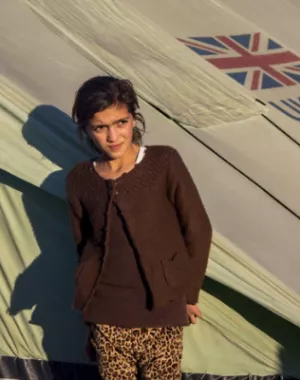Overview
Being ‘a Force for Good’ has found the UK to often play a constructive role in supporting the children and armed conflict agenda with the government signing up to all relevant agreements aimed at reducing the impact of armed conflict on children and even leading on the promotion of some such as the Safe Schools Declaration. However the children and armed conflict agenda does not feature among the current human rights priorities and there are limited resources dedicated to this portfolio and, critically, no dedicated cross government strategy.
With increased prioritisation the UK can ensure that foreign, defence and development policy are coordinated to protect children. The military training and support the UK provides for its partner militaries can ensure our allies cease harming and better protect children. In our report we state British peacekeepers should be setting a gold standard for their capacity and expertise on protecting children in armed conflict and UK policies and practice on recording casualties resulting from its own military operations should reflect international best practice. We also believe the UK must do more to hold all perpetrators to account for war crimes and other serious violations. The UK has not taken sufficient steps to screen whether states it collaborates with conduct rights abuses and we note £913 million of arms have been sold in 2018/2019 to states that are listed by the UN for grave child rights violations.
With the creation of the Foreign Commonwealth and Development Office, the Integrated Review of Security, Defence, Development and Foreign Policy and the roll out of the government's Global Britain agenda, the UK has a historic opportunity to choose to champion children in conflict with policies that will better protect them. The UK should:
-
Appoint a senior ministerial envoy on CAAC to champion the issue both within government and internationally.
-
Develop of a cross-governmental strategy on CAAC in consultation with civil society and other child rights experts.
-
Consistently hold perpetrators of violations to account including through more public condemnation of such acts and imposing sanctions on individual perpetrators.
-
Condition military and other security assistance on effective action by recipient states to address child rights violations.
Download the full report to read more.

